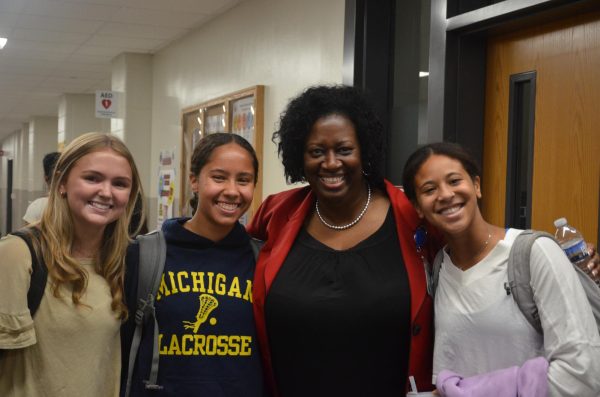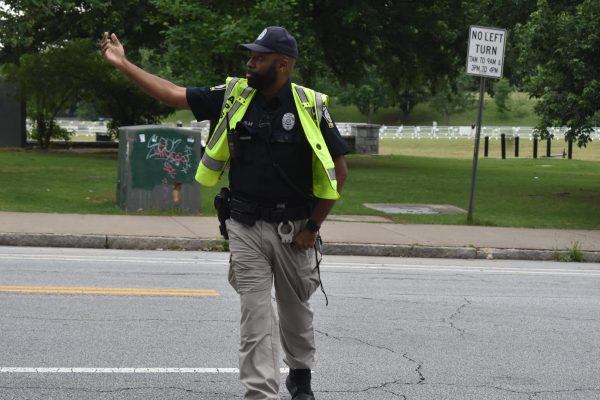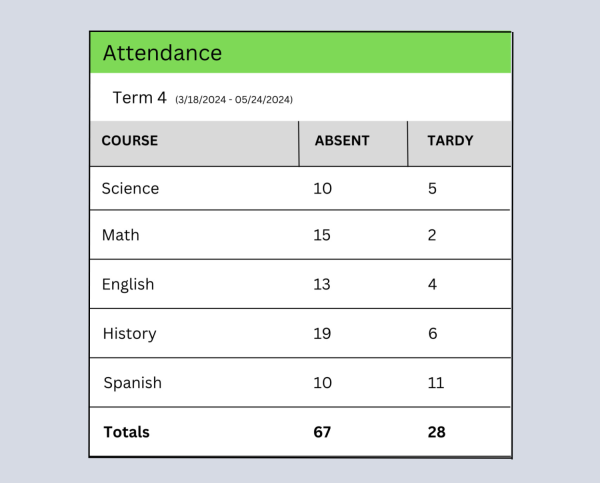Alliance Theater memorializes defining Atlanta Civil Rights moment
March 23, 2017
By Anya Lomsadze
From Feb. 22 to March 12, the Alliance Theater showcased “The Temple Bombing,” by Melissa Fay Greene, memorializing the bombing of the Hebrew Benevolent Congregation Synagogue, which occurred two miles from Grady in 1958. The production of the seldom-spoken story of this defining moment in Atlanta’s Civil Rights Movement marks the synagogue’s 150th anniversary.
Atlanta’s Temple was bombed in the midst of the Civil Rights movement after the synagogue’s new rabbi invigorated the Jewish community to publically support integration. The hate crime wasn’t simply an anti-semitic retort, but a reaction to the city’s progress toward becoming the southern leader for progress in civil rights.
“The Temple Bombing” is unconventional in that it is less a play and more like a live documentary. The cast switches between different characters in practically every scene, telling the story from varying perspectives. Often, the only indicator of a switch in character is something as subtle as a hat. Nevertheless, the tone, rather reminiscent of the fearful tensions felt in the 2016 presidential election, keeps the audience engaged.
The play focuses on the story of Rabbi Rothschild, whose politics would grab the attention of leaders like Martin Luther King Jr. Rothschild, a Pennsylvania native and World War II veteran, came to Atlanta shocked to find a dispirited Jewish culture and surprised by the depth of racial injustice in the city.
Anti-semitic tensions were high, culminating in one of the mostly publicized cases in Georgia history — the 1915 hanging of Jewish factory owner Leo Frank, who was wrongly accused of rape before an anti-Semitic mob grabbed him from his cell and killed him.
Rothschild’s predecessor Rabbi David Marx took care to heal the growing divide between Atlanta’s Christian and Jewish communities prevalent in the early 1900s. Scared, the Jews in Atlanta worked to comply with the predominantly Christian culture to avoid further confrontation.
Rothschild’s 1946 arrival to Atlanta would be momentous. He reinvigorated the Jewish community, calling on people to accept the scripture they abandoned under Rabbi Marx and formed a new sense of Jewish identity. However, it was Rothschild’s support of racial integration that ultimately led to the temple bombing.
By the time the Supreme Court ruled on the unconstitutionality of separate but equal in Brown vs. Board of Education in 1954, Rothschild’s sermons ardently supported integration. His subsequent Civil Right efforts included becoming active in civic affairs, inviting black leaders to speak at the Temple and collaborating with Christian clergy to help draft “The Minister’s Manifesto,” a statement signed by 80 Atlanta ministers calling for interracial integration.
In the early hours of a cool October morning in 1958, Peachtree Street shook from a blast. Someone had bombed the Temple. No one was killed, but the building was badly damaged. Shock filled the city, though this incident was not the first of its kind. The Temple in Atlanta was the fourth southern synagogue bombed in little more than a year. Only days later, another synagogue was bombed in Illinois.
“The Temple Bombing” tells this story from the perspective of Rabbi Rothschild’s wife Janice Rothschild and explains the subsequent trial of George Bright, a racist and anti-Semitic member of the neo-Nazi organization the Columbians. After two wild trials from which Bright’s flamboyant attorney was thrown in jail for contempt of the court, Bryant was acquitted.
Though no one was ever punished for the bombing, the Atlanta community successfully rebounded to sustain the Jewish community that threatened to fall apart. Atlanta continued on a relatively smooth path to integration, a feat that may not have been as successful without the moderation and sense of community that came out of this tragedy.
Since the Alliance Theater is closing for the 2017-2018 season for renovations, “The Temple Bombing” is one of the last performances Atlantans can see before the theater reopens in more than a year. The story of a united Atlanta embracing its history as a civil rights leader in the south is a suitable closure for the theater with a vision of community inclusion.
Now more than ever, “The Temple Bombing” is an important reminder of how capable a community diverse in race and religion can be unified.











